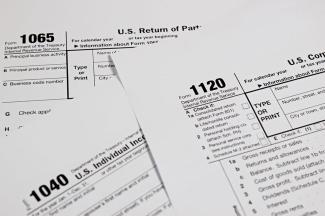Financial and accounting expertise is often required in legal proceedings, particularly in cases involving financial fraud, bankruptcy, breach of contract, or other financial disputes. Providing financial and accounting expertise in legal proceedings involves a careful and methodical process that requires expertise, experience, and attention to detail. In this blog, we will explore the process of providing financial and accounting expertise in legal proceedings.
- Initial Assessment and Planning
The first step in providing financial and accounting expertise in legal proceedings is to conduct an initial assessment and planning phase. This involves reviewing the case documents and identifying the relevant financial and accounting issues. The financial expert must also understand the legal framework and the relevant accounting and financial reporting standards.
Once the initial assessment is complete, the financial expert will develop a plan outlining the scope of work, the approach to be taken, the resources required, and the estimated costs. This plan is submitted to the client and the legal team for approval.
- Data Collection and Analysis
The next step in the process is to collect and analyze the relevant financial and accounting data. This includes reviewing financial statements, bank statements, tax returns, contracts, invoices, and other relevant documents. The financial expert must also interview relevant parties, such as company executives, employees, and external auditors.
The data collected is then analyzed using various financial and accounting techniques. This includes analyzing financial ratios, cash flow projections, income and expense analysis, and other financial metrics.
- Report Preparation
Once the data has been analyzed, the financial expert will prepare a report summarizing their findings. The report must be clear, concise, and based on sound financial and accounting principles. The report must also be objective and impartial, presenting the facts without bias.
The report typically includes a description of the financial and accounting issues, an explanation of the methodology used to analyze the data, the results of the analysis, and the expert's opinion on the matter. The report may also include exhibits and appendices supporting the expert's findings.
- Expert Testimony
If the case goes to trial, the financial expert may be required to provide expert testimony. This involves presenting the expert's findings and opinions to the court, under oath, and subject to cross-examination by the opposing party.
Expert testimony requires strong communication skills, as well as the ability to explain complex financial and accounting issues in a clear and concise manner. The financial expert must also remain impartial and objective, and avoid being swayed by the legal arguments or emotional appeals of the parties involved.
Conclusion
Providing financial and accounting expertise in legal proceedings is a complex and demanding process that requires expertise, experience, and attention to detail. The process involves an initial assessment and planning phase, followed by data collection and analysis, report preparation, and potentially expert testimony. By following a careful and methodical process, financial experts can provide valuable assistance to legal teams in resolving financial and accounting disputes.



